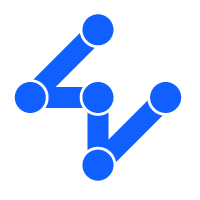
In the rapidly evolving field of data science and AI, new tools and frameworks are constantly emerging. While LangChain has been widely adopted for creating advanced applications that rely on large language models (LLMs), new solutions like PhiData are gaining traction. PhiData, an open-source data platform, introduces fresh approaches that could redefine data management, analysis, and engineering pipelines for modern teams.
LangChain has provided robust tools for LLM-based applications, offering modular components to structure data pipelines and model interactions. However, as use cases have diversified, LangChain’s structure has presented limitations, particularly when scaling and integrating non-LLM workflows. The platform’s heavy focus on chaining LLM operations can sometimes make it cumbersome for broader data processes or when real-time operational data analysis is required. As the need for flexibility and efficient data integration has grown, these constraints have prompted data teams to explore alternatives.
Why PhiData Is Emerging as a Go-To Solution
PhiData has taken a fresh approach, focusing on comprehensive data engineering and analytics. Here are some of the standout features and benefits that make it a promising alternative:
1. Unified Data Operations
PhiData’s architecture is designed to unify various aspects of data operations, from ingestion to transformation, monitoring, and management. By integrating these processes, PhiData allows for streamlined workflows, reducing the need to juggle multiple tools or platforms. This unified approach stands out for teams seeking an efficient end-to-end solution without custom bridging.
2. Built-In Workflow Automation
Automation is at the core of PhiData, making it ideal for managing complex workflows that require regular data processing. Unlike LangChain, where the focus is primarily on LLM-specific chains, PhiData empowers users to automate a wider range of data tasks, including ETL (Extract, Transform, Load) processes and data quality checks. This built-in automation saves time and minimizes the manual work associated with traditional data management.
3. Flexible Data Integration
PhiData supports seamless integration with various data sources and platforms, enhancing flexibility for diverse data ecosystems. The platform offers native connectors for popular databases, cloud storage solutions, and APIs, allowing it to pull in data from virtually any source. This flexibility contrasts with LangChain’s more model-focused integration, making PhiData ideal for broader data engineering tasks.
4. Data Governance and Security
Data governance is paramount in modern analytics. PhiData offers built-in data governance features, including access controls, data lineage, and audit trails. These features ensure compliance with industry regulations, a necessity for organizations in sectors like finance and healthcare. By prioritizing data security and regulatory adherence, PhiData provides peace of mind to businesses handling sensitive data.
5. Open-Source Flexibility and Community Support
Like LangChain, PhiData is open source, meaning it benefits from community contributions and transparency. However, PhiData’s open-source framework is built with extensibility in mind, allowing developers to adapt and extend the platform according to their unique requirements. This makes it a viable solution for organizations looking to customize their data architecture without being locked into proprietary ecosystems.
6. Real-Time Monitoring and Analytics
One of PhiData’s most compelling features is its real-time monitoring and analytics capabilities. Through intuitive dashboards, teams can track data flows, performance metrics, and process statuses in real-time. This observability is crucial for businesses that rely on timely insights to make decisions. By comparison, LangChain, while powerful in orchestrating model tasks, lacks this operational focus, making PhiData more suitable for data-centric observability.
When to Choose PhiData Over LangChain
While LangChain remains an excellent choice for LLM-driven workflows, PhiData excels in data engineering, observability, and compliance. It is particularly beneficial for:
- Teams with complex data pipelines: PhiData’s automation and workflow management simplify multi-step data operations.
- Organizations prioritizing data governance: With robust governance features, PhiData aligns well with regulatory requirements.
- Businesses needing real-time data insights: The platform’s monitoring tools make it ideal for scenarios that require up-to-date data tracking.
Final Thoughts: A Modern Solution for Modern Data Needs
LangChain has undoubtedly been a valuable tool for LLM-specific workflows, but as data requirements grow more complex, PhiData offers a comprehensive alternative. With its unified approach, automation capabilities, and focus on governance, PhiData is well-positioned to address the evolving needs of data engineering teams. For those seeking a scalable, secure, and open-source platform, PhiData is proving to be a formidable solution in the modern data landscape.
PhiData is worth exploring if you’re looking to move beyond the limits of LangChain and embrace a more adaptable data platform.
If you’re ready to jump in, then check out their GitHub repository for quick start instructions.



